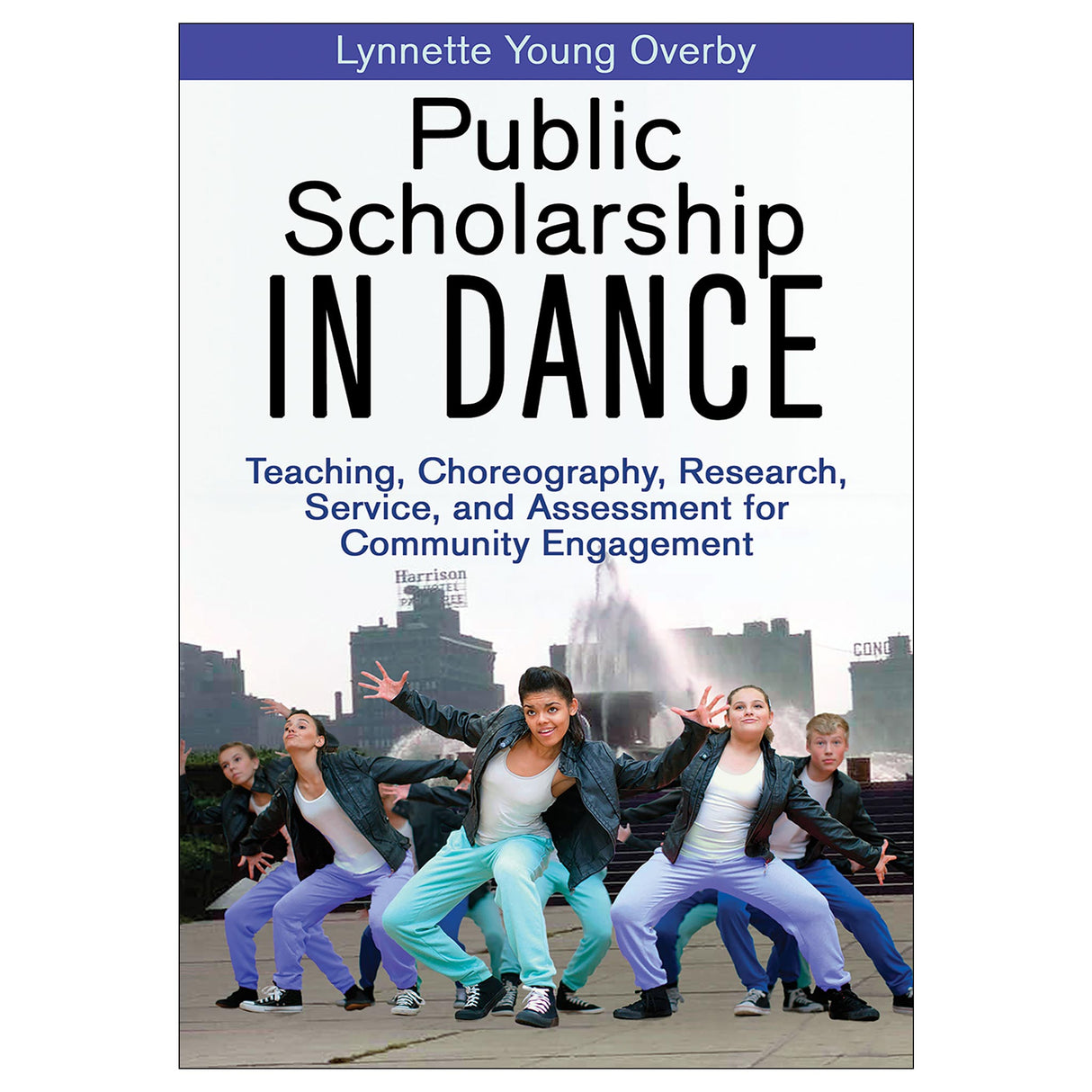Public Scholarship in Dance
Teaching, Choreography, Research, Service, and Assessment for Community Engagement
Author: Lynnette Young Overby
$40.95 CAD
Dance educators in higher education have a long history of enriching the lives of others through community-based teaching, choreography, research, and service. Yet their valuable contributions to community development may not be acknowledged as legitimate scholarship by the university or other educational organizations.
If you are a dance educator or student seeking to engage in public scholarship in dance and want to ensure your work receives the attention it deserves, this resource is for you. Public Scholarship in Dance is a dance-specific guide that provides examples of what others have done and suggestions for ways dance educators can evaluate their own projects or work for scholarship. Complete with research, teaching, performance, assessments, and dissemination tools, it is a total package that supports dance educators in their professional development through public scholarship and community engagement.
Author Lynnette Young Overby combines Kolb’s experiential education model with her three decades of experience as a dance educator to show how dance can be public scholarship as teaching, choreography, research, and service. Throughout the text, she shares examples of well-known dance educators who use the methodology to create community dance in a range of settings, including nursing homes, schools, community arts organizations, and underserved groups in the community.
Through this text, future public scholars will learn how to do the following:
•Identify the criteria for public scholarship in dance and connect it to academic requirements for dance educators.
•Understand and apply to their projects the framework for public scholarship in dance.
•Broaden their view of public scholarship to include research, testing, choreography, performance, and service.
•Document their professional activities and development for university administrators.
•Demonstrate the value of their contributions within the framework of promotions, merit, and tenure.
•Lay the foundation for projects considered legitimate by the university and other academic settings
Features include the following:
•Real-world examples of successful community dance projects
•Dance-specific models for future project design
•Assessment tools for connecting projects to rigor in dance education
•An appendix with ready-to-use templates to guide the development, implementation, and dissemination of public scholarship in dance projects
•Suggested readings and additional resources for continued learning and professional development
The goal of this text is to assist dance educators in creating scholarly, community-focused projects. To that end, the book mirrors the stated missions of higher education—teaching, research, service, and—for dance educators—choreography.
Chapter 1 establishes the historical and theoretical basis for public scholarship while defining public scholarship in dance. Chapter 2 focuses on academic service learning—including the teaching of dance—and the importance of meeting the experiential learning needs of students.
Chapter 3 explores choreography as commuunity expression and offers guidelines on assessing and developing community-based choreography.
In chapter 4, dance educators delve into research and the role it plays in shaping a career in public scholarship. Chapter 5 makes a case for service as scholarship while demonstrating specific assessment criteria that demonstrate impact. Chapter 6 explores various forms of assessment that can be used to document projects and prepare for tenure, promotion, and merit considerations.
Chapter 7 concludes by proposing a vision for the future of dance education in which community is an integral part.
Public Scholarship in Dance will inspire budding and experienced dance educators and arm them with the necessary tools to incorporate community engagement into their lives to positively affect students, their community, and their professional portfolios.
Audience
Reference for university dance professors and dance educators in public schools. Text for upper-level undergraduate and graduate-level courses in community dance courses or programs.
Chapter 1 What Is Public Scholarship in Dance?
Chapter 2 Public Scholarship in Dance: Teaching
Chapter 3 Public Scholarship in Dance: Choreography
Chapter 4 Public Scholarship in Dance: Research
Chapter 5 Public Scholarship in Dance: Service
Chapter 6 Public Scholarship in Dance: Assessment
Chapter 7 Public Scholarship in Dance: Final Thoughts
“Public Scholarship in Dance is a brilliant, sorely needed work of scholarship—a major contribution to our field!”
Barbara Bashaw, EdD, HonDFA, CMA-- Graduate Director of EdM Program in Dance Education, Mason Gross School of the Arts





